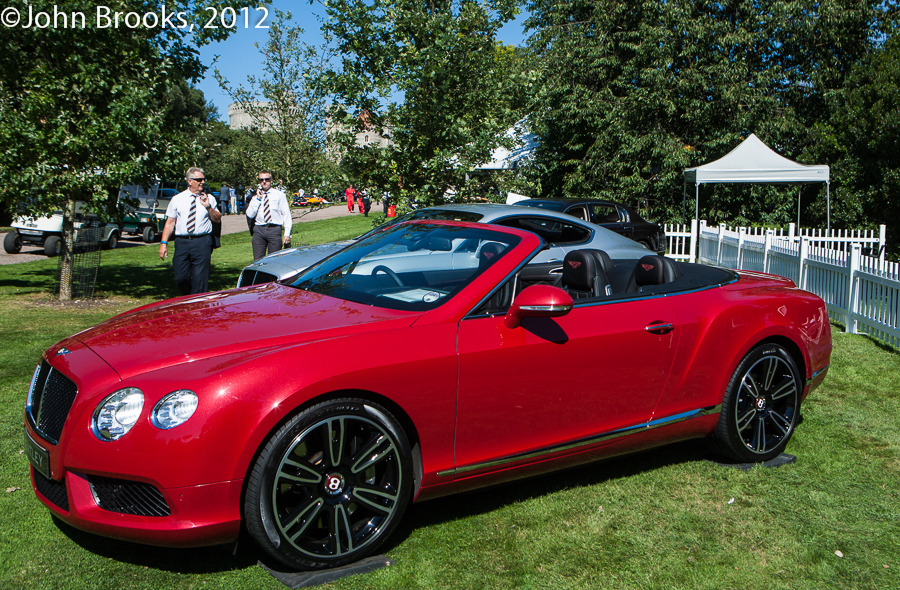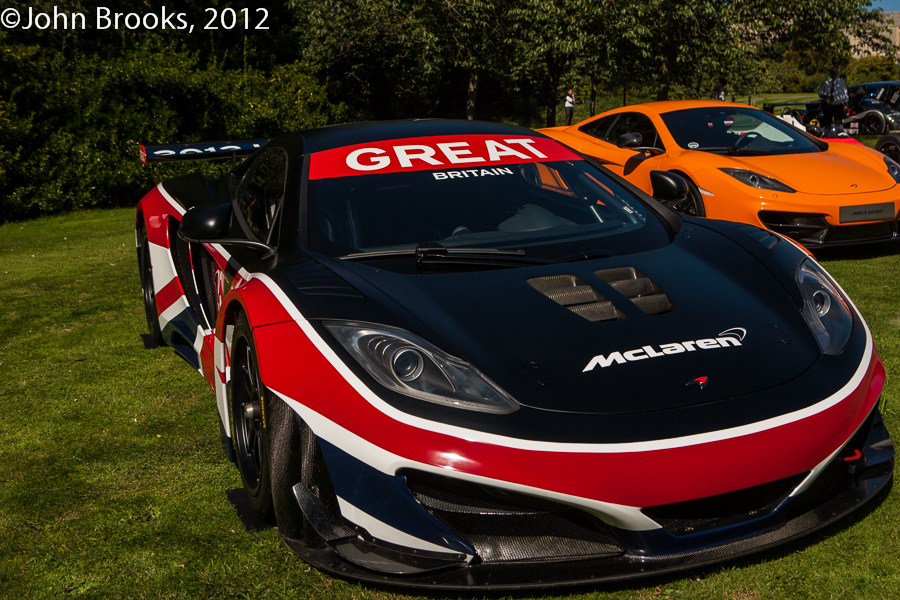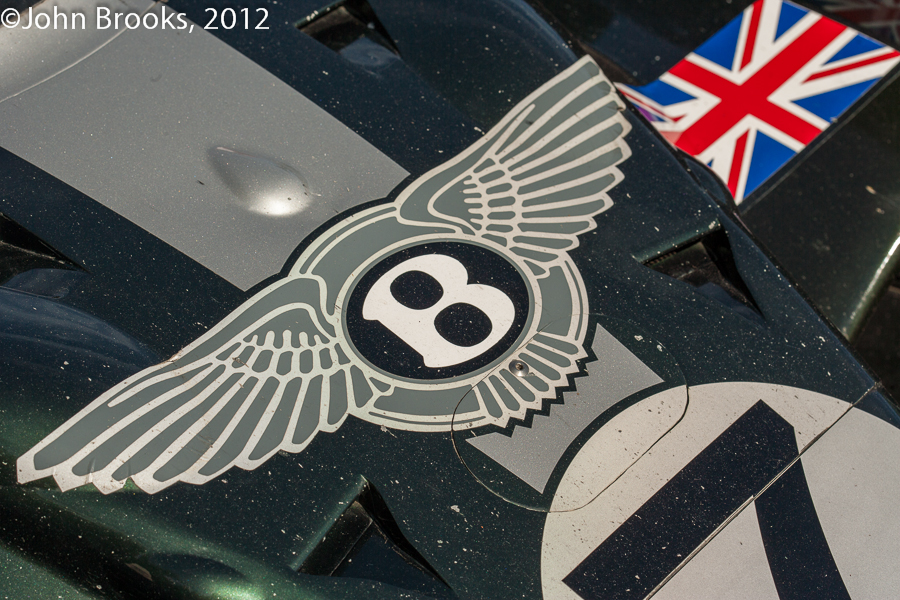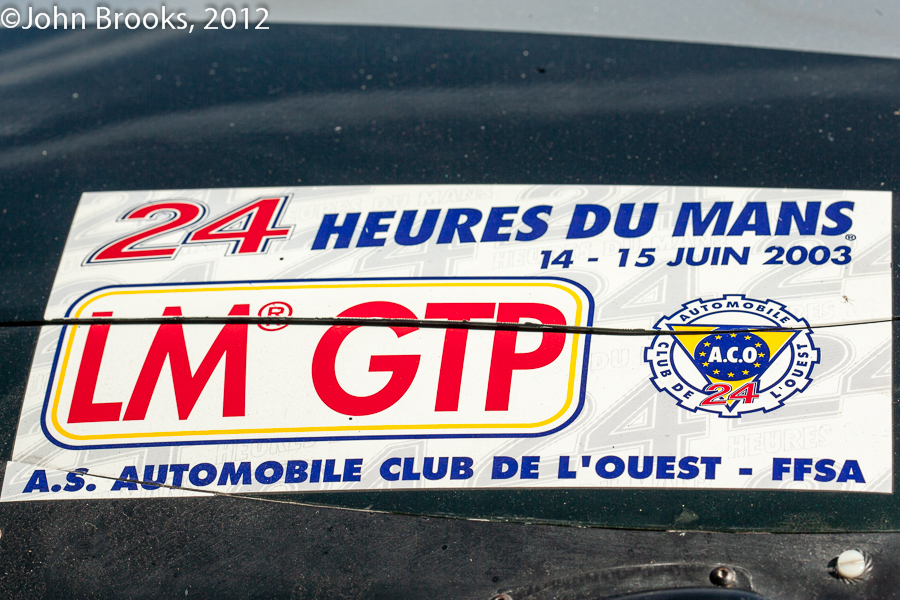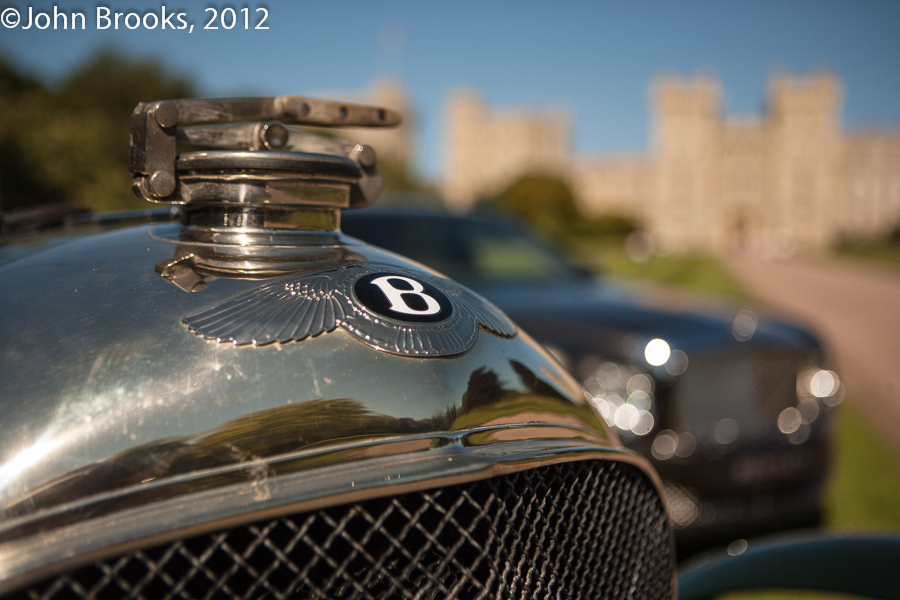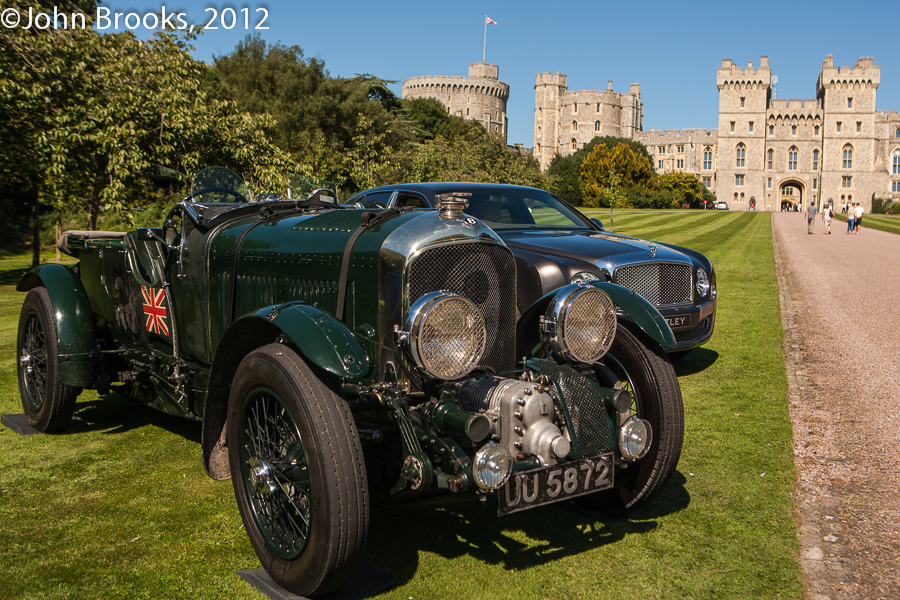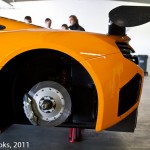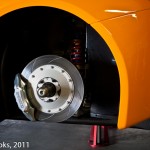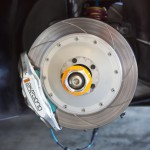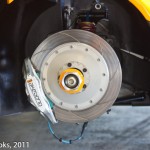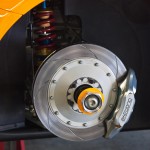One of the great successes in recent endurance racing is the Blancpain Endurance Series. Stéphane Ratel has come up with a formula for GT3 cars that has a widespread appeal. As the jewel in the crown, the Spa 24 Hours, approaches, it seems appropriate to get the thoughts and reflections from our Special Correspondent.
An impressive 57 GT cars started the Blancpain Silverstone race, a week after the British GT series managed a splendid 46 starters for their “500” event. GT racing is certainly popular, but despite these successes, I pose the question: are there now too many GT races? On the very day of the Blancpain race, the British Endurance Series (Britcar) could only muster 8 starters for their Rockingham round and the GT Cup race at Brands Hatch had just 11 runners. These are series that have mustered healthy grids in the past, so is it all being overdone? It would seem to suggest so and this is a shame. Inevitably a consequence is an over-crowded calendar, of course. Much as we like them, fewer races, please, so that enthusiasts can attend more.
An unexpected and most welcome feature of Silverstone’s Blancpain round was the last-minute entry of a works Aston Martin, their V12 Vantage GT3. The car had been brought from the Nϋrburgring 24 Hours, given a quick work-out at Snetterton to adapt to the Pirelli tyres and taken thence to Silverstone.
That this car dominated the event was especially appropriate in Aston Martin’s Centenary year and it mirrors the appearance 60 years ago almost to the week of a single works Aston Martin winning the sports car race at Charterhall when Reg Parnell gave the DB3S its début (no GTs then!). The addition of the GT3 car to the regular Blancpain entry was very desirable – it makes the race more memorable and it breaks up the “package” concept whereby the same cars are expected at every round, so worryingly reminiscent of the unhealthily rigid situation in Formula One. Motor racing needs plenty of “natural” variety, with cars turning up when they’re ready, not because some selfish rules (motivated by greed) dictate that everyone has to come every time. Well done, Aston Martin, for coming when it suited your needs!

The Audi R8 has gradually been coming good, winning the important 24 Hour races at the Nϋrburgring and Spa in 2012. They provided strong opposition at Silverstone and one was not surprised to find two of the very competitive Belgian WRT Team cars next home after the Aston. This is the Ortelli/Vanthoor/Rast second-placed example.
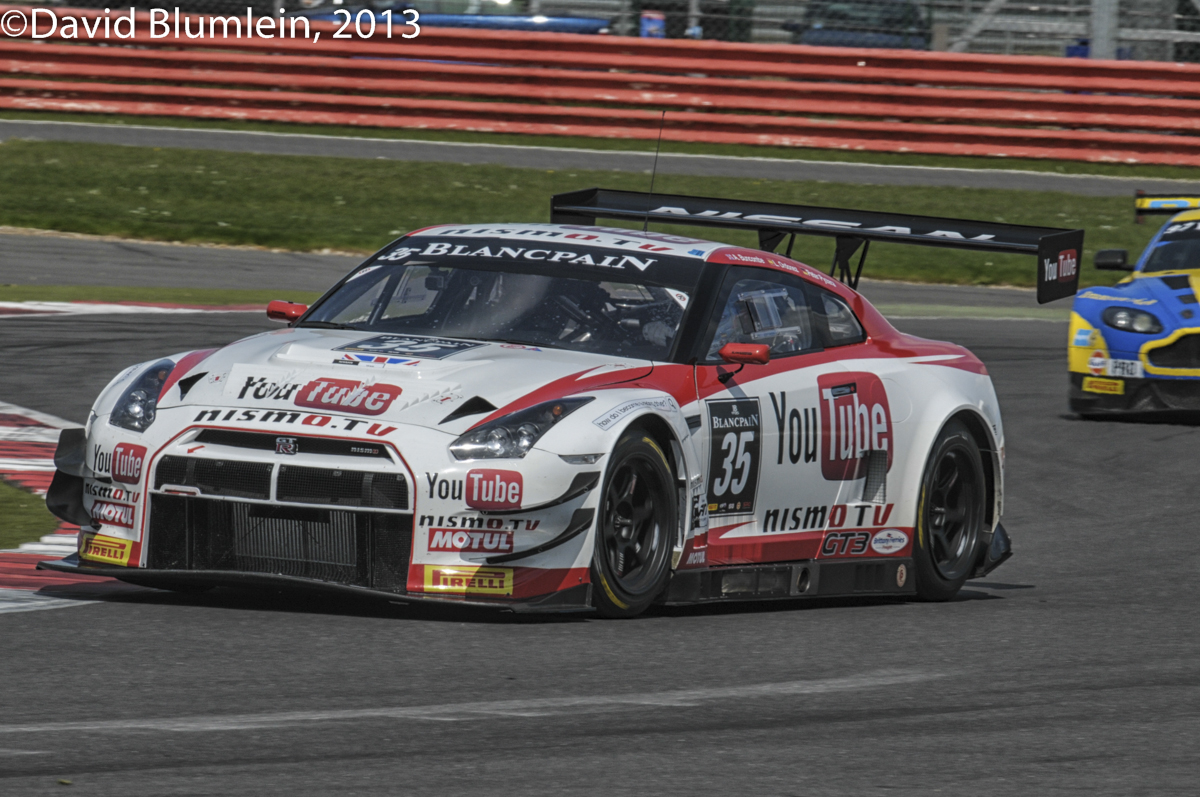
Also offering strong competition were the Nissan GT-R Nismo GT3s. The British team JRM has been developing these cars in conjunction with NISMO in Japan and was rewarded with 4th place. The RJN no. 35 machine even led the winning Aston in the early laps, in the end it won the Pro-Am category, finishing 10th.
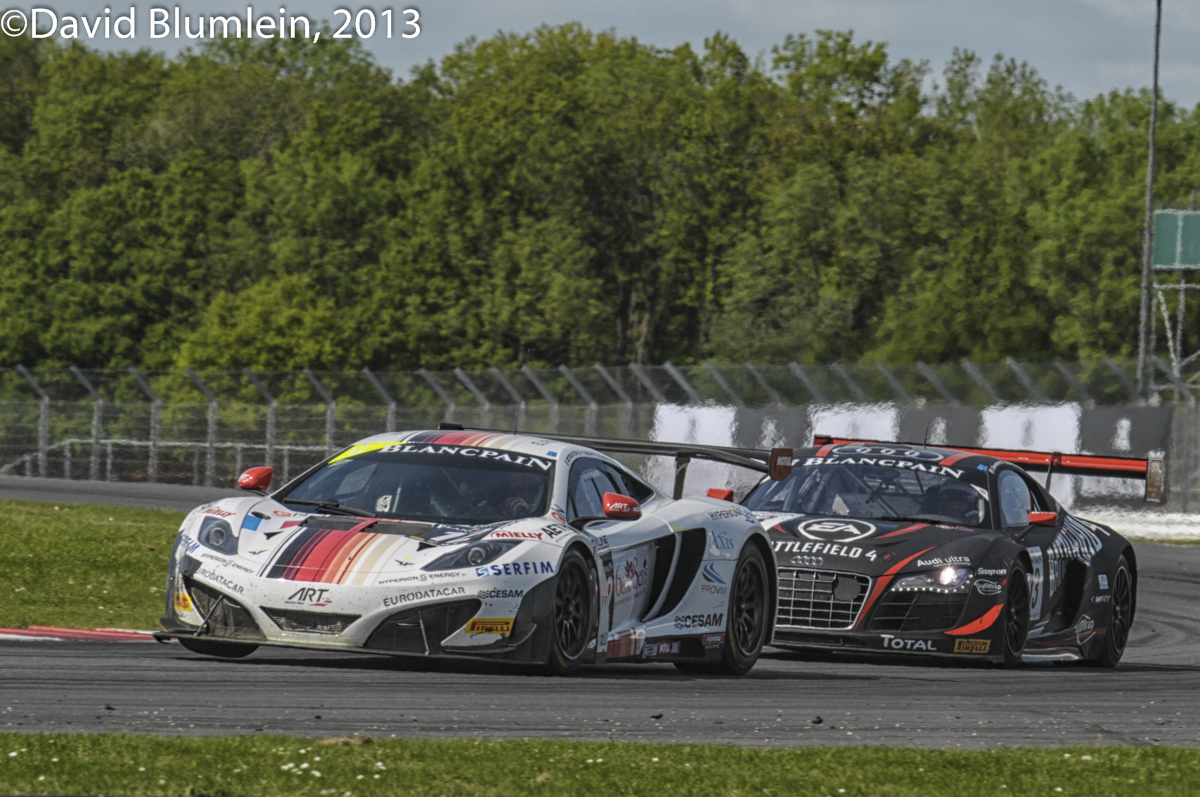
Disappointing were the McLarens – their best result was 7th courtesy of the Hexis team who had much success formerly with their Aston Martins. Like several others they elected to use the Woking cars for 2013 but these new cars seem to be off the pace at the moment. Above is the French ART Team MP4-12C three-wheeling out of Becketts.
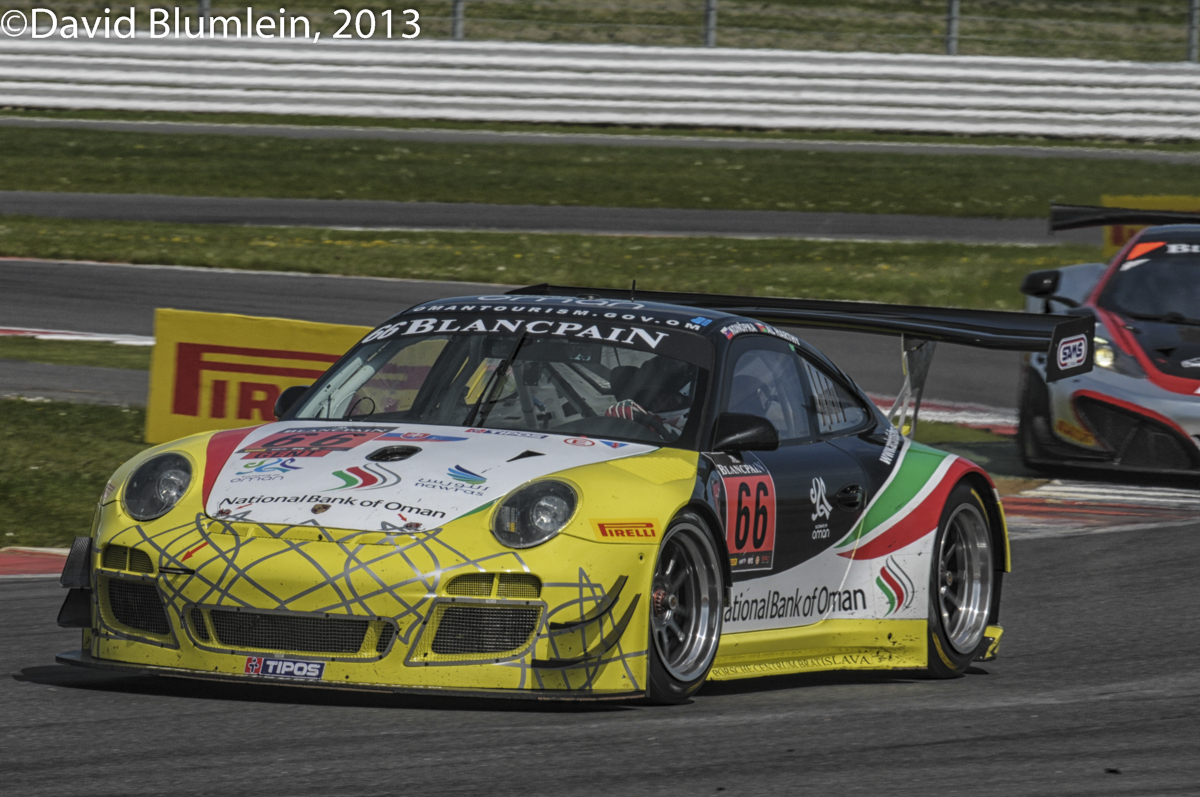
One of the particular joys of endurance sports/GT races is the presence of the subsidiary classes, especially when they throw up unexpected winners. Such was the case with the Gentlemens’ Trophy, the GTR category. This Slovakian-entered Porsche 997 GT3 R of the ARC Bratislava team came out top of the thirteen starters:
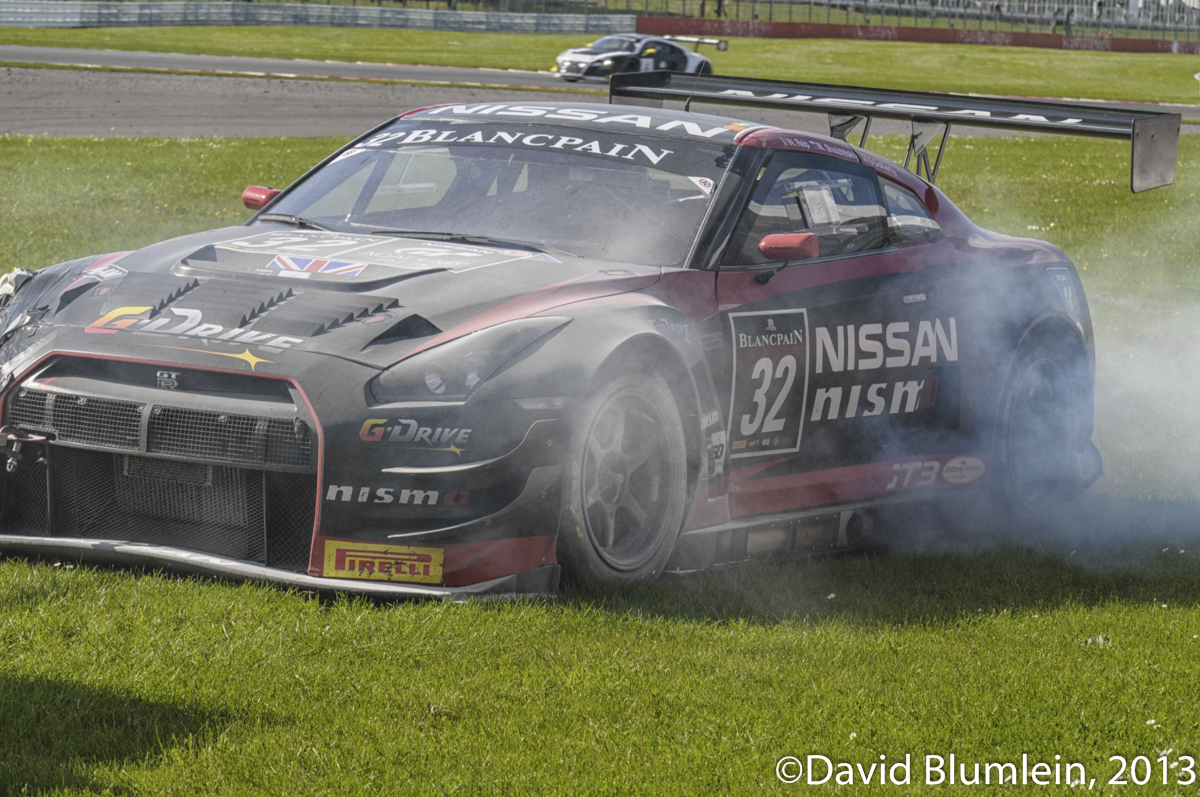
Of the original 57 starters overall only 9 cars were unclassified, a most satisfactory reliability rate. Alas, one which failed was this Nissan GT-R NISMO GT3 which understandably could not recover from an under-bonnet fire.
David Blumlein July 2013






